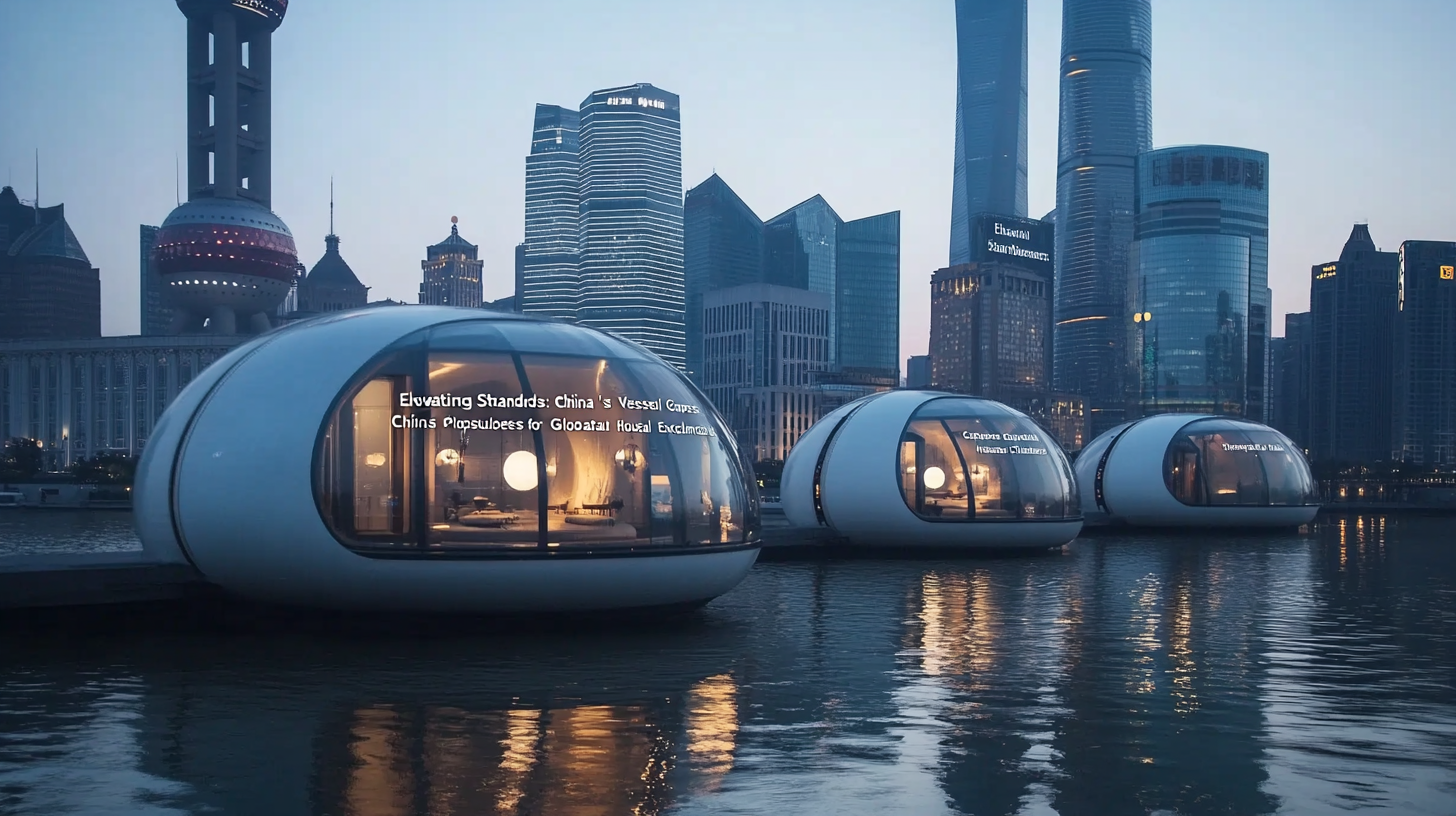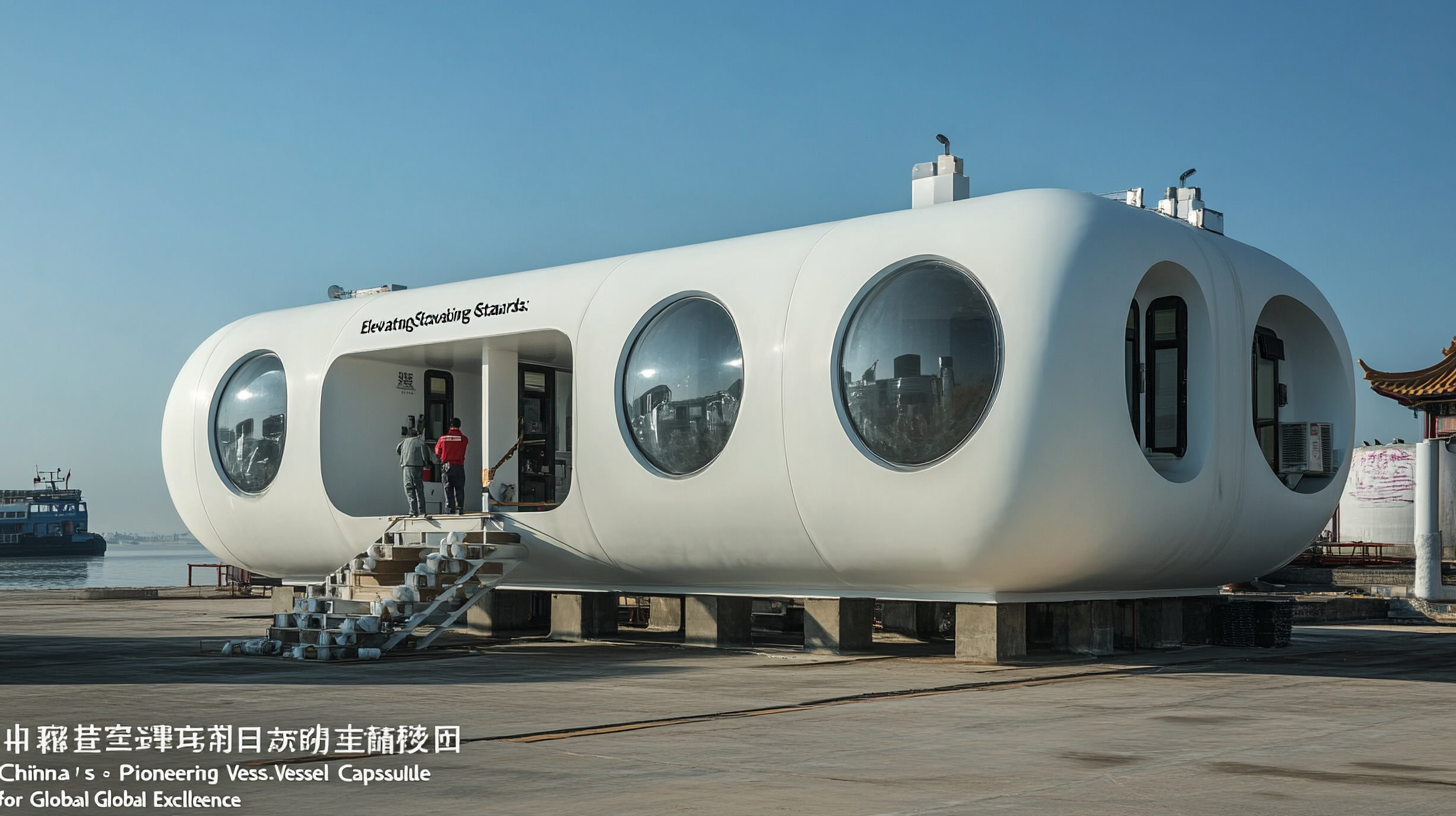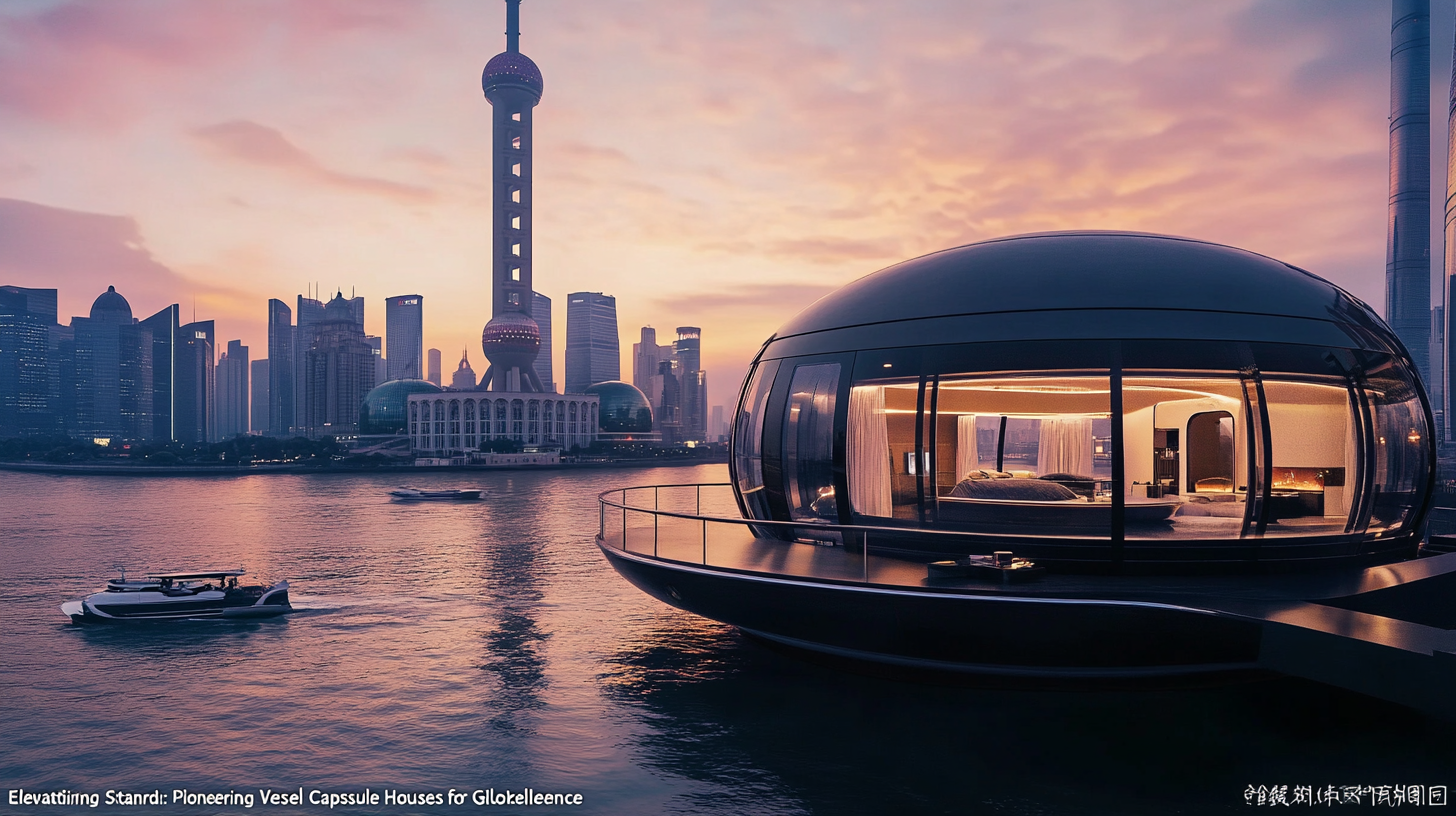
News
“Elevating Standards: China’s Pioneering Vessel Capsule Houses for Global Excellence”
In recent years, the global architecture and housing sectors have witnessed a transformative trend towards innovative and sustainable living solutions. Among these, the "Vessel Capsule House" has emerged as a pioneering concept, revolutionizing the way we perceive space and comfort. According to a report by Market Research Future, the global portable housing market is projected to reach USD 78.61 billion by 2027, indicating a growing demand for compact and efficient living solutions. The Vessel Capsule House, with its unique design and environmentally friendly principles, is poised to lead this market by addressing urbanization challenges and the need for affordable housing. This forward-thinking approach not only enhances aesthetics but also prioritizes functionality, making it a viable option for a wide range of demographics. As China spearheads this movement, the Vessel Capsule House stands as a hallmark of global excellence, setting new standards for quality and innovative living spaces.

Innovative Design: The Aesthetic Appeal of Vessel Capsule Houses
In a rapidly evolving world, the emergence of vessel capsule houses stands out as a breakthrough in both form and function. Combining innovative design with practical living solutions, these homes offer a unique aesthetic appeal that sets them apart from traditional housing. Their sleek, modern lines and modular capabilities not only captivate the eye but also promote sustainability, making them an ideal choice for environmentally conscious consumers. The versatility of vessel capsule houses allows for customization to meet diverse living needs, enhancing their attractiveness in today's housing market.
Recently, a Chinese company has made headlines with a substantial investment to bring these futuristic modular homes to Mexico. This initiative highlights the global potential of vessel capsule houses, illustrating their viability beyond domestic borders. By establishing a plant dedicated to constructing prefabricated capsule homes, the company is poised to revolutionize the housing industry in Mexico, blending innovative design with local preferences. As these homes gain traction, they are likely to redefine standards of living, offering a harmonious balance between beauty, functionality, and ecological responsibility.

Sustainability in Construction: Eco-Friendly Materials and Practices
As the world increasingly embraces sustainable practices, China is at the forefront of integrating eco-friendly materials and innovative construction methods in its pioneering vessel capsule houses. This design not only challenges conventional architectural norms but also significantly reduces environmental impact. According to a report by the World Green Building Council, buildings account for nearly 40% of global energy-related carbon emissions, underscoring the urgent need for sustainable alternatives. By utilizing recycled metals and energy-efficient insulation in these capsule homes, China exemplifies a commitment to reducing carbon footprints and promoting a circular economy.
Tip: When considering eco-friendly materials for construction, look for certifications such as LEED or BREEAM to ensure environmental integrity and performance.
Moreover, vessel capsule houses incorporate smart technology to optimize energy consumption, further enhancing their sustainability. A study from McKinsey highlights that integrating smart technology in construction can lead to energy savings of up to 30%. By seamlessly combining renewable energy sources like solar panels with efficient storage systems, these homes set a benchmark for the future of sustainable living.
Tip: Invest in smart home technology; it not only improves energy efficiency but also elevates overall living comfort.
Elevating Standards: Chinaâs Pioneering Vessel Capsule Houses for Global Excellence
This pie chart illustrates the distribution of eco-friendly materials used in the construction of vessel capsule houses, highlighting China's commitment to sustainability in modern architecture.
Modular Living: The Advantages of Flexible Space Solutions
The rise of modular living is reshaping the way we think about our homes and workspaces, offering flexible solutions that adapt to our changing needs. Modular architecture, with its innovative design and construction methods, presents an effective strategy to tackle pressing challenges in urban development. The concept of modularity allows for interchangeable components, making it easier to customize living and working environments. This not only enhances functionality but also supports a more sustainable approach to construction, significantly reducing waste and resource consumption.
As partnerships between modular builders and traditional construction firms strengthen, the potential for scalable modular solutions grows exponentially. This collaboration can lead to a substantial increase in affordable housing options, addressing the unmet demand in many urban areas. Furthermore, the flexibility inherent in modular designs extends beyond mere aesthetics; it encourages a nature-positive, circular economy by promoting resource efficiency and resilience in the built environment. Thus, as we explore the transformative power of modular living, it becomes clear that this innovative approach is not just a trend—it's a pathway to a more adaptable and sustainable future.
Global Implications: How China's Designs Influence International Architecture
China's pioneering venture into vessel capsule houses is not merely a domestic innovation; it holds significant global implications for architecture and urban design. According to a report by the International Council on Monuments and Sites, the demand for sustainable living solutions is expected to rise, with a projected market growth of 30% by 2025. China's vessel capsule houses epitomize this trend, offering minimalistic, eco-friendly living spaces that can be rapidly deployed in various environments. Their modular design not only addresses housing shortages but also embodies a futuristic vision that prioritizes environmental balance.
Internationally, architects are taking cues from China's designs, experimenting with adaptable spaces and sustainable materials. The World Green Building Council indicates that green building practices are increasingly influencing market trends across the globe, with a surge in eco-conscious constructions. Moreover, as urban populations swell, the principles underlying vessel capsule houses—efficiency, mobility, and sustainability—could redefine urban architectures worldwide. Through these innovative designs, China is not only elevating its own architectural standards but also fostering a new paradigm that could lead to more resilient and sustainable urban living globally.
Elevating Standards: China’s Pioneering Vessel Capsule Houses for Global Excellence
| Aspect | Implications | Global Influence |
|---|---|---|
| Architectural Innovation | Sets new design benchmarks for sustainability | Inspires architects worldwide to adopt eco-friendly practices |
| Cultural Integration | Emphasizes the blend of modern design with traditional elements | Fosters cross-cultural exchanges in urban planning |
| Technological Advancement | Utilizes cutting-edge technology for construction | Influences global standards for construction methods |
| Environmental Sustainability | Reduces carbon footprint with modular building | Promotes international collaboration on green initiatives |
| Economic Impact | Creates new jobs in innovative construction sectors | Encourages global investment in sustainable architecture |
Future Trends: The Next Generation of Capsule Housing Solutions
The future of housing is being reshaped by innovative designs, and capsule homes are at the forefront of this transformation. These compact, efficient living spaces are not just a solution to urban overcrowding but also a testament to sustainable living. As cities around the world grapple with space constraints and escalating costs, capsule houses offer an attractive alternative that maximizes utility while minimizing environmental impact. The integration of advanced technology and eco-friendly materials is paving the way for energy-efficient homes, where every square foot is utilized creatively.
China's pioneering approach in capsule housing demonstrates how future trends will prioritize adaptability and functionality. These modular homes can be easily customized to meet various needs, catering to diverse populations, from young professionals to retirees. Moreover, with a focus on smart home technology, the next generation of capsule houses will not only be compact but also capable of enhancing the living experience through automated systems, efficient energy consumption, and improved connectivity. As these innovative solutions gain momentum, they promise to redefine urban living, making it more sustainable, affordable, and exceptionally livable.

